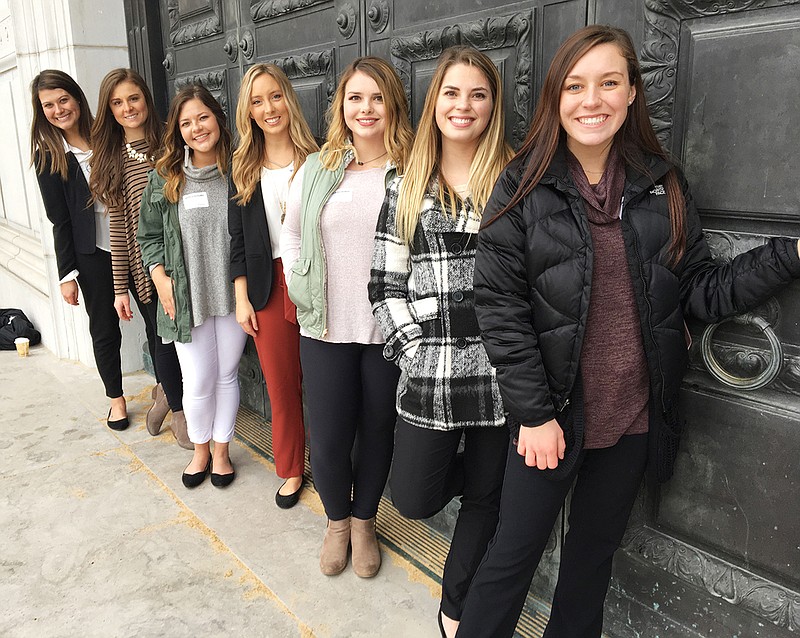Nine hundred voices, speaking together, working as one. That's hard to ignore.
The Missouri Nurses Association held its Nurse Advocacy Day on Wednesday in Jefferson City. The annual event lets roughly 900 nursing students travel to the Capital City to learn how to advocate for a common cause and put that new knowledge into practice.
The daylong event "introduces legislative advocacy as a way for nurses and nursing students to advocate for their patients," said a news release from MONA. Organizers said the event positively affects health care policy.
For the event, the organization nearly takes over the Capitol Plaza Hotel, setting up exhibits from nursing schools, hospitals, health care groups and nursing organizations, according to the release.
People going into nursing are doing so because they want to help other people, according to Ally Kroencke, a nursing student from Lone Jack.
"It's cool, as a beginning nurse, to see what all goes along with nursing," Kroencke said. "We're now beginning to understand what goes into it."
This year, some of what goes into being a nurse means fighting for common-sense legislation for tanning beds, syringe exchanges, prescription drug monitoring and "unleashing" advanced practice registered nurses, Kyna Iman, MONA's lobbyist, said.
APRNs are registered nurses with post-graduate education in a variety of specializations.
Iman told the nurses - all gathered in the hotel's ballroom - they should attend a noon hearing for House Bill 1260, which would prohibit anyone younger than 18 from using a tanning bed at any public facility in Missouri. In fact, she'd run into another lobbyist earlier who said he was in Jefferson City to oppose the bill.
Her response, Iman said, looking more than 900 supporters of the bill was, "Ooh, you're in for a bad day."
Missouri is the only state in the nation which has what Iman calls a "leash law," stating APRNs have to be within a certain distance from their collaborating physician to see a patient. In Missouri, the distance is 50 miles in a rural area and 30 in an urban area.
"Who says that if you travel 51 miles, you're not qualified to treat that patient?" Iman asked. "That's ridiculous. You're trained. You're educated. You know what you're doing."
If the lobby can't get the rule changed through statutes, the organization is going to pursue a petition to try to get Gov. Eric Greitens to sign an executive order removing the rule.
"He's leaning our direction, because he wants no more red tape," Iman said. "He really doesn't want these barriers and restrictions on licenses.
"Governor, put your money where your mouth is."
Jill Kliethermes, chief executive officer of the Midwest Midwest Multistate Division of MONA, said APRNs who attend schools in Missouri see less restrictions at other states, such as Iowa, and practice without all the restrictions in Missouri.
"Those states actively recruit our nurses," Heidi Lucas, MPA Missouri director, said. "They'll send letters to our nurses - nurse practitioners - saying, 'Come here.'"
They offer chances for nurses to practice using all the skills they've learned.
Nurse practitioners spend years of their lives training in Missouri, get out and sometimes learn they can't practice the way they'd like here, Kliethermes said.
Another challenge is that when any new collaborative practice arrangement is made (between an APRN and a physician), the APRN is required to work for 30 days side-by-side with the physician, no matter how much experience the APRN has. APRNs can't be pulled away from patients that long, Kliethermes said.
"It makes everything challenging," she said.
But, the freshly minted nurses now have new skills and feel like they're up to the challenges, student nurse Jordan Morton said.
"It's pretty cool," she said, "that we get to discuss the different bills and the political side of nursing."

